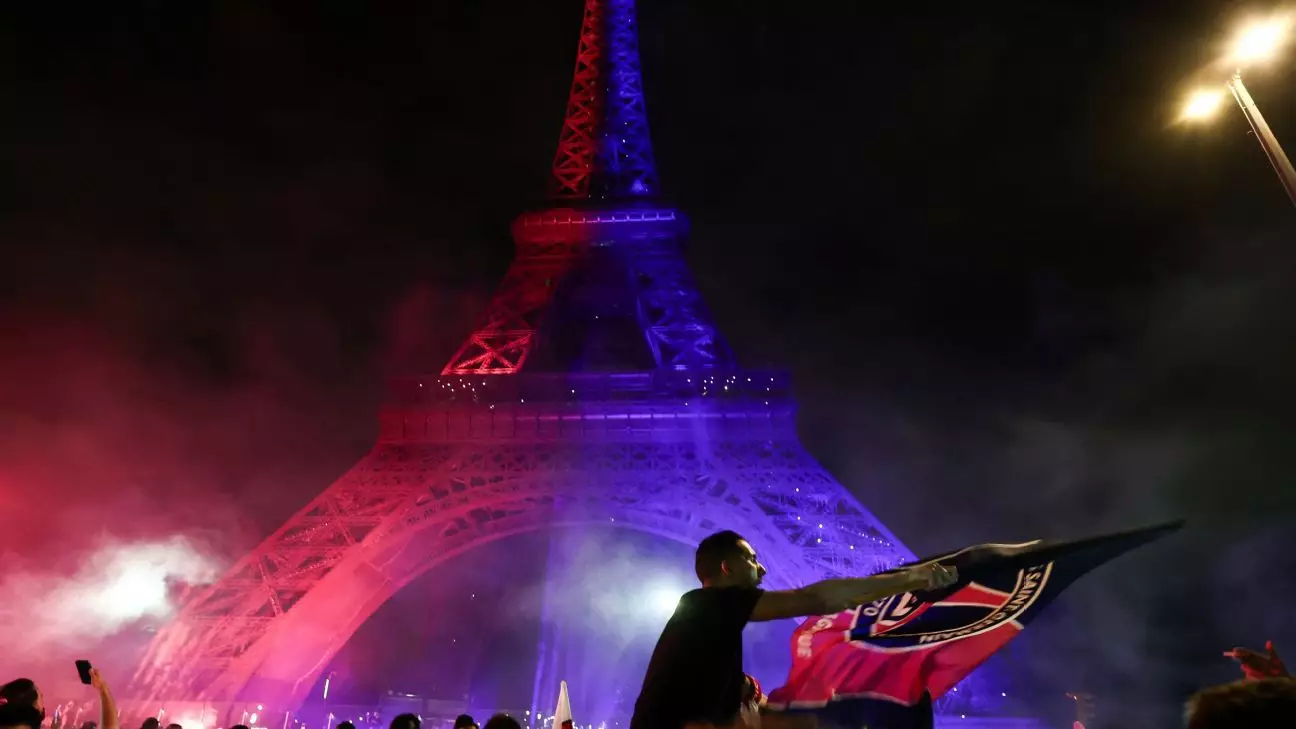Paris Saint-Germain (PSG) recently celebrated a landmark achievement by winning their first UEFA Champions League title, a feat that has eluded them for years. The excitement enveloping the city of Paris during this monumental occasion was palpable; fans adorned in the team’s iconic colors overflowed into the streets, rejoicing in a celebratory dance that illuminated the night. The Eiffel Tower, proud and vibrant in a display of PSG’s colors, stood as a symbol of hope and achievement, uniting fans in a euphoric embrace of victory. Yet beneath the glittering facade of joy and triumph lies a troubling narrative that reveals the darker side of celebrations steeped in passion.
The Tragic Consequences
What began as a jubilant celebration took a catastrophic turn when violence marred the festivities. Reports surfaced that two fans lost their lives during the celebrations—a 17-year-old in Dax and a young man in Paris who tragically succumbed to injuries after being struck by a vehicle. Such incidents are haunting reminders that exuberance, when unchecked, can spiral into chaos. The tragedy laid bare the precarious balance between revelry and recklessness, igniting conversations around community safety during public celebrations of this nature.
Moreover, the fallout from the events transcended mere fatalities, as a police officer sustained severe injuries from a wayward firework. While the overwhelming majority of celebrations were peaceful, the emergence of violent clashes amid the jubilation underscores an unfortunate reality in modern sporting events. It raises the question, can the thrill of victory and the passion of fans coexist without chaos lurking in the shadows?
The Role of Authorities and Public Safety
In the aftermath, authorities were faced with the challenge of maintaining order amidst the festivities gone awry. Paris police deployed a substantial number of officers to monitor the situations both in the city and around key events such as the anticipated victory parade down the Champs-Élysées. The deployment strategy included measures reminiscent of previous large-scale celebrations—drawing from lessons learned during celebrations of France’s World Cup win. However, as reported, the response also included the use of tear gas and water cannons to manage unruly crowds, indicating a level of preparedness for potential unrest.
Security measures extended far beyond personnel on the ground. The streets of central Paris were closed, a tactic meant to ensure the safety of the throngs gathering to express their adoration for PSG. However, such precautions also impacted surrounding events like the prestigious French Open, invoking criticism regarding the balance of prioritizing public safety while maintaining the festive atmosphere intrinsic to such occasions.
A Celebration Stolen by Chaos
Witnessing euphoric joy quickly escalate into violence is disheartening. While fans took to climbing monuments and revving their engines on motorbikes to celebrate, reports of looting and vandalism muddied the serenity. Opportunistic individuals exploited the chaotic circumstances to break into stores along the rue de Rivoli, further complicating the narrative of joyous commemoration.
It is essential to examine the societal implications of sports victories and how such moments can catalyze both celebration and unrest. Coverage of such events often tends to romanticize the jubilance without fully grappling with the undercurrents of aggression that lurk at the edges. Paris police chief Laurent Nunez’s assertion that many individuals chose to engage in violence rather than simply enjoying the game points to a concerning trend—one that suggests rather than facing the thrill of competitive sports, some individuals revel in chaos instead.
Lessons for Future Celebrations
As PSG players bask in the spotlight of their hard-earned victory, it is crucial for both fans and authorities to reflect on the essence of celebrations. They serve not only as a means to acknowledge success but also present an opportunity to reinforce community spirit and solidarity. The events that unfolded reflect that, while the allure of excitement is captivating, a collective commitment to peaceful celebration must be pursued.
Moving forward, let’s prioritize a culture where the joy of sporting victories does not come at a grave cost, ensuring that exuberance of the masses translates into a unified celebration devoid of violence. It is time to reimagine how we celebrate and how each fan’s actions contribute to an atmosphere of joy and security. The essence of football lies not just in triumph but in a shared companionship that brings communities together, as long as we steer clear of the chaos that can so easily ensnare us.

